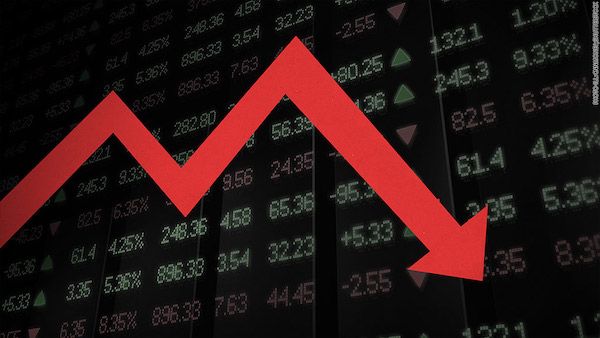Business
Foreign capital inflow into Nigeria falls by 78% in second quarter –NBS

The total value of inflow of foreign capital into the Nigerian economy in the second quarter of this year crumbled by 77.88% relative to the first quarter, the National Bureau of Statistics (NBS) said on Friday.
The country’s Q2 2020 foreign capital inflow figure, which stood at $1.295 billion, fell by 78.60% from the one recorded in the corresponding period of 2020 as Africa’s biggest economy takes a double whammy from a record crash in the price of oil, its top export commodity, and the coronavirus pandemic.
The largest amount of capital importation by type was received through Other investment, which accounted for 58.77% ($761.03m) of total capital imported, followed by Portfolio “Investment, which accounted for 29.76% ($385.32m) and Foreign Direct Investment (FDI), which accounted for 11.47% ($148.59m) of total capital imported in Q2 2020,” the statistics office said in its Nigerian Capital Importation Q2 2020 Report.
On sectorial basis, capital importation by shares dominated in Q2 2020, accounting for $465.57 million of the entire capital importation in the period.
Read also: Foreign capital inflow into Nigeria shrank by 31% in first quarter –NBS
The biggest source of capital investment to Nigeria was the United Kingdom, which provided $428.83 million or 32.12% of the nation’s foreign capital inflow.
Lagos State was the number one destination of capital investment, accounting for as much as $1.130 billion or 87.30% of Nigeria’s capital information figure.
By bank, Standard Chartered emerged at the top of capital investment in Nigeria at $425.21 million, translating to 32.84%.
Foreign Direct Investment, which constituted $148.590 million of the Q2 2020 figure, contracted by 30.65% quarter on quarter (QoQ) and 33.41% year on year (YoY).
Portfolio Investment, however, accounted for $385.32 million of the foreign capital inflow figure for the period, falling by 91.06% QoQ and 91.14 YoY. Of this, money market instruments made up $332.07 while equity was responsible for the rest $53.25 million.
Other Investment totalled $761.03 million, declining by 42.81% QoQ and 48.60% YoY. This category comprised Loans ($726 million) and Other Claims ($35.04 million).
Join the conversation
Support Ripples Nigeria, hold up solutions journalism
Balanced, fearless journalism driven by data comes at huge financial costs.
As a media platform, we hold leadership accountable and will not trade the right to press freedom and free speech for a piece of cake.
If you like what we do, and are ready to uphold solutions journalism, kindly donate to the Ripples Nigeria cause.
Your support would help to ensure that citizens and institutions continue to have free access to credible and reliable information for societal development.
























